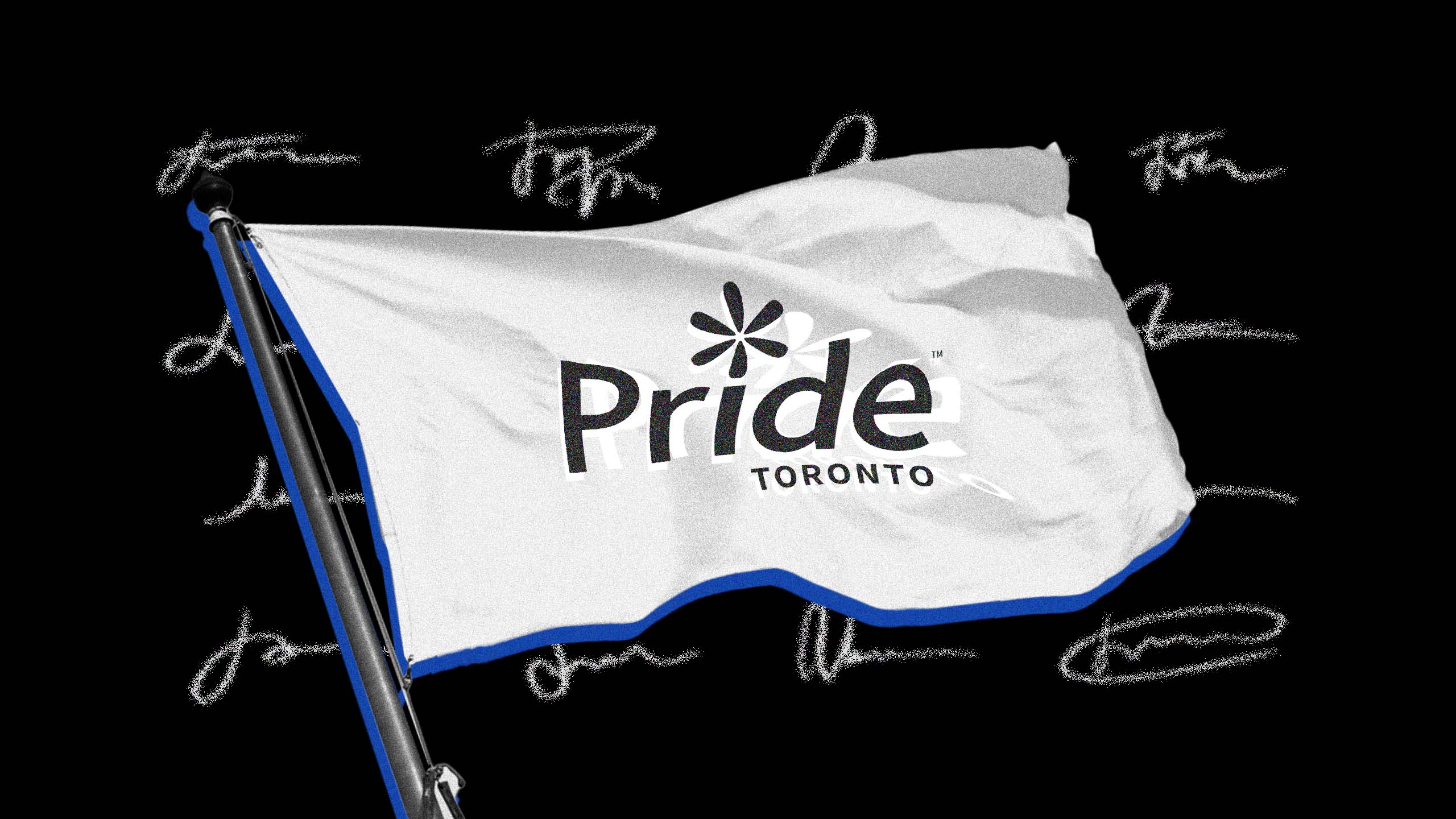Pride Toronto is facing new allegations that it lied about the involvement of renowned Indigenous artist Kent Monkman and forged at least one signature to obtain a 2019 grant from the federal government worth CAD $1 million.
The grant, from the Federal Economic Development Agency for Southern Ontario (FDO), was intended to be used for Pride projects and programming. But, according to documents obtained by Tom Hooper, an assistant professor in the department of equity studies at York University in Toronto, $900,000 of the grant was spent on Pride salaries and labour costs, and the remaining $100,000 on rent and legal fees.
Pride Toronto had not responded to a request from Xtra for comment on the latest allegations by press time.
Pride Toronto has faced numerous allegations this year concerning a series of grants totalling millions of dollars from the federal government in 2018 and 2019. The non-profit LGBTQ2S+ organization has been accused, among other charges, of misleading the government about how the money was used, falsifying letters of support from queer and Indigenous organizations, exploiting queer and Two-Spirit Indigenous artists and attempting to rescind a ban on police participation in the parade against members’ wishes.
Hooper has been using freedom of information requests to obtain thousands of pages of documents from the federal government detailing the grant processes.
The application for this latest grant was sent in May 2019, and stated that Pride would use the money “to grow LGBTQ2S+ programming across the Greater Toronto Area. The project will activate approximately 15 different communities across the GTA supporting LGBTQ2S+-specific programming.”
The application proposed to use the money—called a “contribution agreement” by the FDO—to fund projects including “a conversation with the community about community-led and designed spaces” and a “co-design session that focuses on developing and designing arts and cultural spaces across the GTA.” It also included plans for a 2020 Pride pavilion and stated that Pride would partner with “the Indigenous community and most notably Kent Monkman.”
Pride used claims of partnership with Monkman to help obtain two previous grants from the federal agency Canadian Heritage—one grant worth $250,000 and one worth $600,000. Monkman, however, had already backed out of an agreement with Pride prior to those grants being obtained.
“No contract was ever presented to me by Pride Toronto to produce the project, nor were any agreements signed,” he told Xtra by email in February 2022.
In its application for the $1 million economic development grant—signed by then-Pride executive director Olivia Nuamah—the signature of at least one member of the organization’s board of directors appears to have been forged.
The application includes signatures from then-board members Michael Erickson, who was the chair, Christin Milloy, Akio Maroon, Ande Clumpus, Brian De Matos and Danny Papadatos.
But Akio Maroon confirmed in an interview with Xtra that they had not signed the grant application, and said their name on the form was not even correct.
“I had resigned a month before,” says Maroon. “I wasn’t on Pride that month, and that’s not how you spell my name.”
In an email to Xtra, Erickson referred all comments to Pride. “Please direct questions regarding the Pride Toronto Corporation to the current Board and Executive Director,” he wrote. “As I am no longer on the Board, it is best if they, as the legal body of the Corporation, address this.”
Xtra was unable to contact any of the other board members whose names appeared on the form.
Maroon said they had resigned because they disagreed with steps the organization’s leadership was taking and its failure to be open.
“I wish that people had heeded my warnings then, about being honest and transparent with the membership,” they say. “You don’t serve the membership by covering up for people, with lack of integrity, acting from a place that is dishonest.”
Nuamah had not responded by press time to a request from Xtra for comment.
The FDO confirmed that it signed off on the ways Pride used the money.
“All approved projects have signed contribution agreements based on the agreed upon project scope, terms and conditions. We reimburse based on costs incurred related to the approved contribution agreement,” the agency said in an email. “The Agency has in place a number of mechanisms to ensure due diligence, including verification methods for FedDev Ontario-supported projects.”
Following the charges of misconduct earlier this year concerning the two Canadian Heritage grants and another $1 million grant from Public Safety Canada, Pride commissioned an independent report from KPMG Canada. That report included numerous instances where Pride failed to deliver complete and accurate cash flow statements and was unable to produce project plans, contracts and receipts documenting expenses and employee work.
The grant from the FDO was not included in that review.
In an interview with Xtra in January 2022, Pride executive director Sherwin Modeste—who took over the position in November 2020, after the alleged improprieties, and remains ED today—promised Pride would be transparent going forward.
“There is no question that we have to work to regain the trust of members, and of some community members,” he said. “The work we are currently doing is to ensure that we hold myself accountable, we hold future execs and future board members accountable. Transparency and accountability remain central to us moving forward.”
References cited
1. Pridegrants.ca by Tom Hopper, assistant professor in the department of equity studies at York University in Toronto
2. “Pride Toronto mishandled grant funding, exploited Indigenous and Two-Spirit artists, investigation finds” by Krishna Rau, Xtra, Feb. 2, 2022
3. “An external audit of three federal grants to Pride Toronto leaves more questions unanswered” by Krishna Rau, Xtra, April 14, 2022
4. “Pride Toronto, Grant Compliance Review.” KPMG audit, March 16, 2022
For a discussion of the sources and methods used in reporting this story, go here.


 Why you can trust Xtra
Why you can trust Xtra


